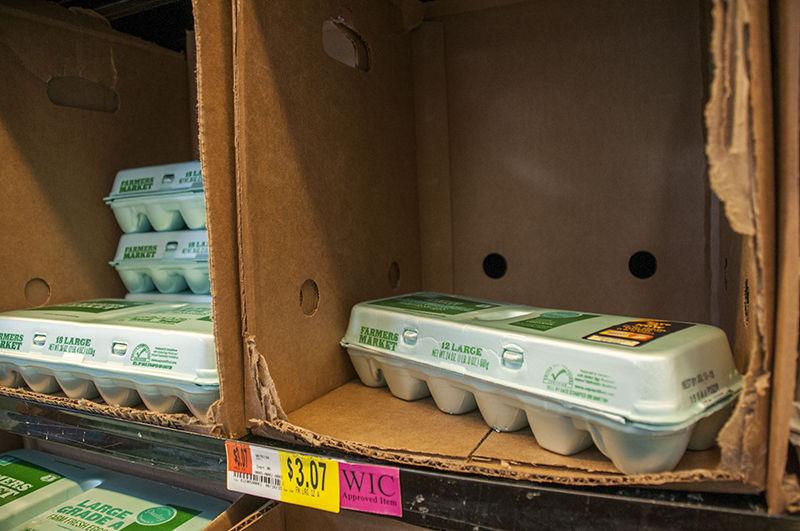We may not know if the chicken or the egg came first, but a new strain of avian influenza that surfaced in the Midwest late last year has had an impact on the supply of eggs nationwide.
The H5N2 strain of influenza has caused the death or humane eradication of upwards of 40 million chickens and other fowl, mainly in the states of Iowa, Minnesota, South Dakota and Kansas, and taken the egg laying potential down to 12 percent.
Craig Coufal, associate professor and extension specialist in the A&M Department of Poultry Science, said this strain has been more devastating than others previously seen.
“In this case, it was what we call a high pathogenic strain,” Coufal said. “It causes a very high rate of mortality in the birds that get infected.”
When such a strain appears in the population, federal government regulations call for all the birds that have been infected to be humanely killed to prevent further influence of the virus.
“The USDA rules state that if there’s an outbreak of highly pathogenic influenza, then those birds must be quarantined and depopulated to prevent the virus from spreading,” Coufal said. “That is the only known way to prevent the spread.”
Poultry science senior Brian Okosun said while the strain is fatal to birds, it poses no danger to humans.
“People shouldn’t be concerned about catching avian influenza,” Okosun said. “It’s very difficult for a human to contract, with one of the very few ways being direct contact with a bird that is infected. The process of cooking an infected egg or meat of an infected bird would kill the virus.”
Coufal said there have not been any cases reported in Texas birds, and the main impact Texans will see will be when they buy eggs at grocery stores or restaurants. Texas does not produce eggs at a high rate, and has to import them from states that have been hit hard by the shortage.
“Eggs are shipped into the state from Arkansas, Iowa and other states that produce eggs,” Coufal said. “Since we don’t have enough, and the supply in the other states became less, that caused there to be a shortage on the market here in Texas.”
That shortage has lead to a price hike in stores statewide, Okosun said.
“When you have fewer eggs to go around, the price must rise to meet production demands,” Okosun said. “It started around April with a 63 cent rise, and the current price [per dozen] has gone up $1.83.”
As a result, stores like HEB have had to place limits on what their customers can buy, placing signs on their shelves that prohibit buying eggs in bulk. According to a statement released by the company, officials said they’re “committed to ensuring Texas families and households have access to eggs.”
“We are asking our customers to limit their purchase to three cartons per purchase (regardless of carton size),” the statement said. “The signs placed on our shelves last week are to deter commercial users from buying eggs in bulk.”
Coufal said the efforts finally seem to be slowing down the spread of the virus, and egg prices have been dropping for about two weeks.
“We’ve seen a huge decrease in the number of reported cases in the past two weeks, and actually haven’t had a newly reported case in over a week,” Coufal said. “So it looks like we’re getting a handle on it.”
Coufal said the impact has been so enormous, that it could take some time for the situation to work itself out.
“It will be a minimum of a year, and probably closer to 18 months before we’re back to normal,” Coufal said.




















